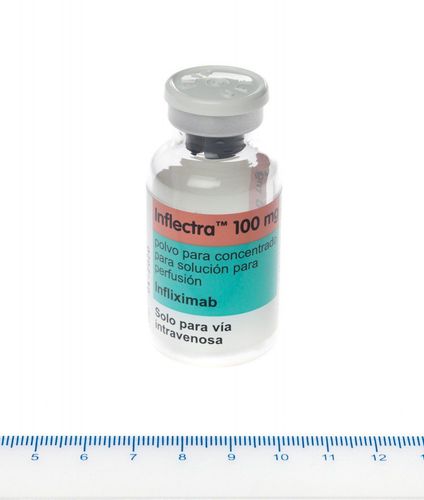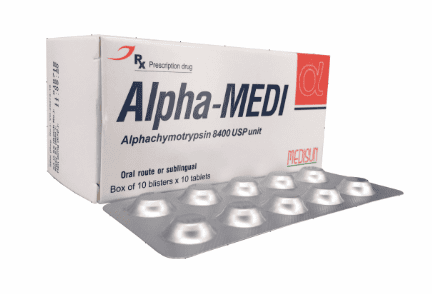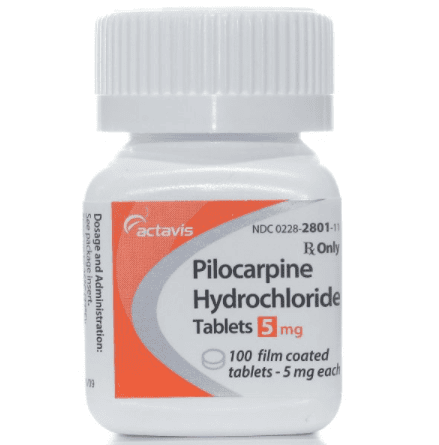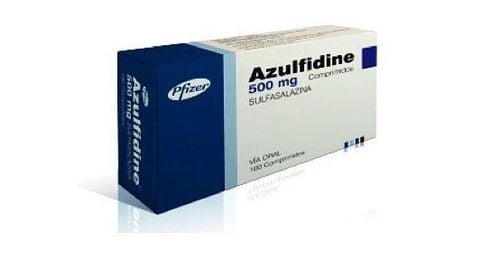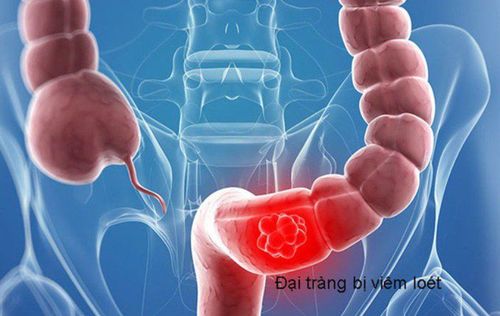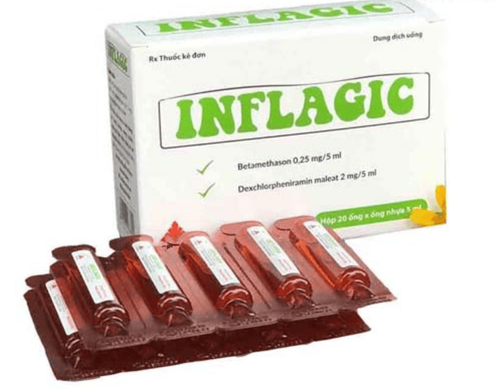This is an automatically translated article.
Posted by Master, Doctor Mai Vien Phuong - Department of Examination & Internal Medicine - Vinmec Central Park International General Hospital
Patients with ulcerative colitis may experience ocular lesions such as episcleritis, scleritis, and uveitis. Rarely, optic neuritis or corneal vasculitis may occur.
1. What is ulcerative colitis?
Ulcerative colitis (UC) is a type of inflammatory bowel disease (IBD). IBD includes a group of diseases that affect the gastrointestinal tract.
UC occurs when the lining of the large intestine (also called the colon), the rectum, or both becomes inflamed.
This inflammation creates small sores called ulcers on the lining of the colon. It usually begins in the rectum and spreads upward. The inflammation causes the intestines to move quickly and empty the intestines frequently. When the cells on the surface of your gut lining die, sores form. The sores may bleed, discharge mucus and pus.
While this disease affects people of all ages, most people are diagnosed between the ages of 15 and 35. After age 50, there is a small increase in men's diagnoses.
To learn more about the pathogenesis and clinical manifestations of bleeding ulcerative colitis, refer to the following article.
MORE: How is ulcerative colitis discovered?
2. Ocular manifestations of bleeding ulcerative colitis
As in Crohn's, ocular lesions may occur in patients with hemorrhagic ulcerative colitis with typical forms including: episcleritis, scleritis, and uveitis. Rarely, optic neuritis or corneal vasculitis may occur.
2.1. Episcleritis in ulcerative colitis
Episcleritis is a common lesion in IBD, especially in advanced disease, often causing pain but not loss of vision. Treatment of episcleritis is primarily good management of advanced episodes of IBD using steroid eye drops to control symptoms.
2.2. Scleritis in ulcerative colitis
In contrast to episcleritis, scleritis ranges from mild, localized manifestations to progressive disease leading to necrosis, which can cause vision loss. When a patient has symptoms related to vision, an ophthalmologist should be consulted as soon as possible. 60% of patients with scleritis develop complications, of which 16% have long-term vision effects. This type of eye damage is also often present in the advanced stages of inflammatory bowel disease, so treatment should include good management of inflammatory bowel disease. NSAIDs work well for uncomplicated scleritis but are contraindicated in patients with active inflammatory bowel disease. If the patient has recurrent scleritis and is at risk of vision impairment, systemic therapies such as prednisolone, immunomodulators such as cyclosporin, methotrexate should be used.
2.3. Uveitis
Uveitis has two types as anterior and posterior uveitis. Anterior uveitis is more common in Crohn's, but the incidence in bleeding ulcerative colitis also ranges from 2 to 5%. Posterior uveitis is rarely associated with inflammatory bowel disease.
Clinically, patients often have symptoms of pain, blurred vision and photophobia. The pathogenesis of uveitis is unclear, but the involvement of the HLA-B27, B58 and HLA-DRB1*0103 genes suggests the presence of these antigens in both the colon and the eye. In contrast to episcleritis and scleritis, for this type of ocular lesion there is no parallelism with the degree of inflammatory bowel disease progression. In terms of treatment, it is necessary to receive early local treatment and combine systemic treatment to prevent complications such as glaucoma, cataracts, iris adhesions...
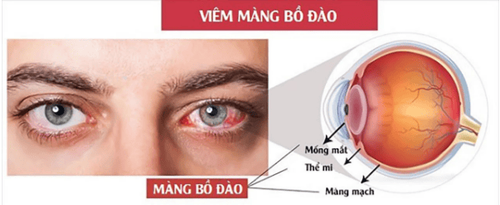
3. Natural treatment for gastrointestinal tract of ulcerative colitis
Some medications prescribed to treat UC can have serious side effects. When traditional treatments are not well tolerated, some people turn to natural remedies to control UC.
Natural remedies that can help treat UC include:
Boswellia: This herb is found in the resin underneath the bark of the Boswellia serrata tree, and research shows it blocks certain chemical reactions in the body. can cause inflammation. Bromelain: These enzymes are found naturally in pineapple, but they are also sold as supplements. They can ease symptoms of UC and reduce flare-ups. Probiotics: Your gut and stomach are home to billions of bacteria. When the bacteria are healthy, your body is better able to fight the inflammation and symptoms of UC. Eating probiotic foods or taking a probiotic supplement can help boost the health of your gut microbiome. Psyllium: This fiber supplement can help with regular bowel movements. This can relieve symptoms, prevent constipation, and make it easier to get rid of waste. However, many people with IBD may experience abdominal pain, bloating, and gas that gets worse when they consume fiber during flare-ups. Turmeric: This golden spice is full of curcumin, an antioxidant that has been shown to reduce inflammation. Up to now, there is no specific drug that completely cures bleeding ulcerative colitis. Only treatment can help limit the disease, reduce pain for the patient. Therefore, in addition to the treatment prescribed by the doctor, the patient needs to follow a good diet for the digestive system, avoid stress and need to have regular health checkups.
As soon as there are symptoms, it is necessary to go to the doctor soon for timely treatment when the damage has not spread. Vinmec International General Hospital with a team of highly qualified doctors, along with modern medical equipment and international standards, readers can trust to choose as a destination for examination and treatment. for yourself and your family.
Please dial HOTLINE for more information or register for an appointment HERE. Download MyVinmec app to make appointments faster and to manage your bookings easily.
Articles refer to sources: NagreF, Gionchetti PR, Eliakim R., De Dombal F.T. (1968), Ulcerative colitis: definition, historical background, aetiology, diagnosis, naturel history and local complications, Postgrad Med, Lichtenstein G.R., btv. (2014), Medical Therapy of Ulcerative Colitis.





